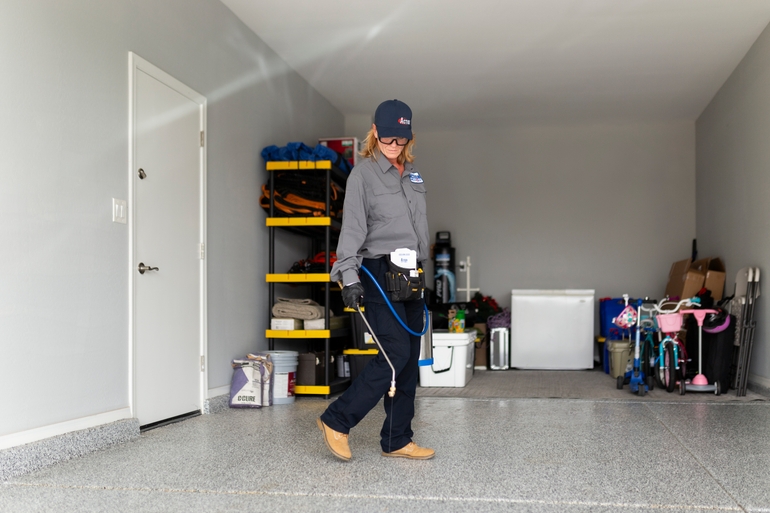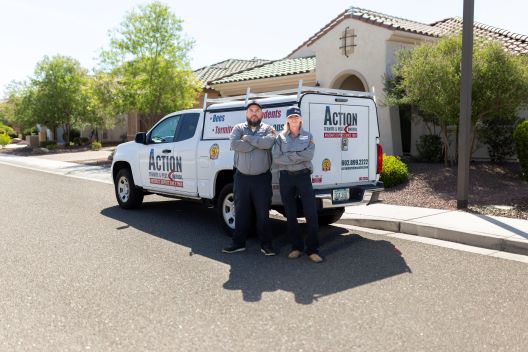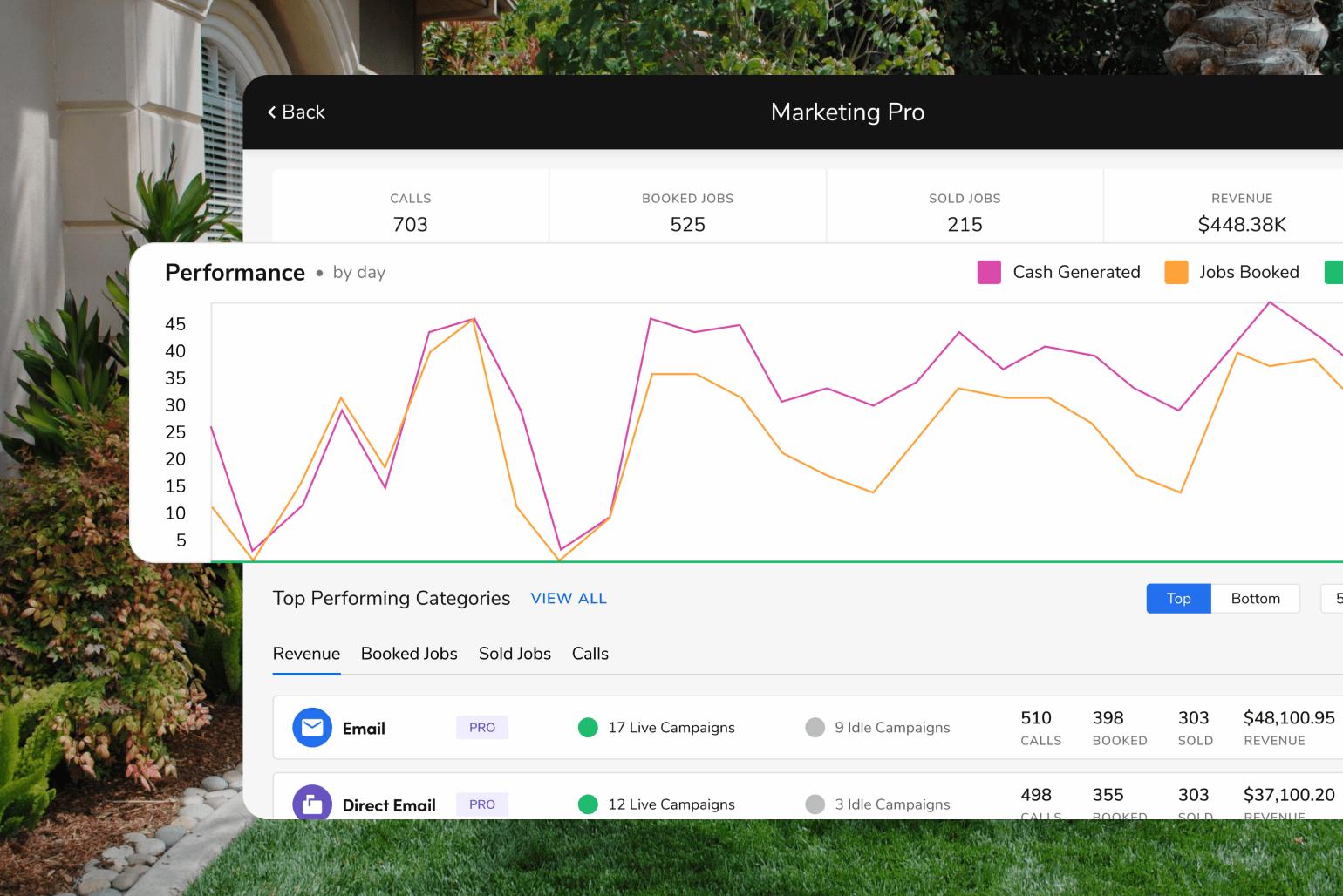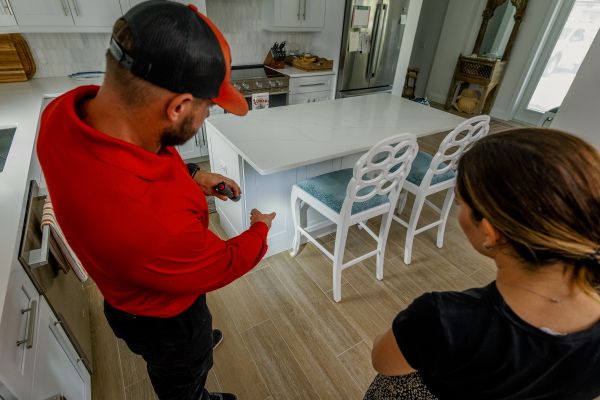Arizona Pest Control License & Certification (Updated)

A pest control license offers financial stability by entering an industry that requires skilled workers. The demand for certified pest control professionals is rising across the US, particularly in states with significant agricultural sectors like Arizona.
According to the Bureau of Labor Statistics, the number of pest control workers will grow by 3% between 2023 and 2032.
The average salary for a pest control applicator in Arizona is around $36,051 and can go even higher.
What Is a Pest Control License?
A pest control license enables individuals or businesses to pests from residential and commercial properties.
The pest control license requirement varies by state. Some states also have different licenses for servicing residential, commercial, government, or subsidized property.
Do You Need a Pest Control License in Arizona?
Yes, you need a license to apply pesticides in Arizona. These licenses are issued by the Pest Management Division (PMD) of Arizona’s Department of Agriculture (AZDA). The PMD regulates all non-agricultural pest control activities in the state, including RUPs in various locations.
Private applicators also need certification for some types of applications.
The PMD covers pest control activities in the following areas:
Ornamental plants and turf
Running or standing water
Roadsides, powerlines, and other public utilities
Residential, commercial, and industrial structures
Wooded areas and structures
Agricultural pest control in Arizona is overseen by the Environmental Services Section (ESS) of the AZDA.
The right license ensures you comply with state regulations and can legally do pest control work.
What Are the Licensing Requirements for Pest Control Contractors in Arizona?
The Licensing and Certification Program is part of the training and certification process for pesticide applicators, pest control advisers, and entities that sell or apply pesticides.
Types of licenses include:
Certified Applicator License: For individuals applying pesticides or supervising their application.
Business License: For companies offering pest control services.
Qualified Applicator License: For those using restricted-use pesticides (RUPs).
Structural Pest Control License: For pest control in residential, commercial, and industrial structures.
Steps to obtain a license:
Complete the required training
Pass the licensing exam
Submit an application
Maintain continuing education
You must meet these requirements to comply and do pest control work.
What Are the Different Types of Pest Control Licences in Arizona?
Arizona offers several types of pest control licenses to cater to various needs within the pest control industry. These license categories have their own requirements for different types of pest control work. Here’s a breakdown:
License Category | Description |
Ornamental and Turf Pest Control | Applying restricted-use pesticides (RUPs) to control pests in producing and maintaining ornamental plants and turf. |
Aquatic Pest Control | Applying RUPs to standing or running water, except for public health-related situations. |
Right-of-Way Pest Control | Applying RUPs for roadsides, powerlines, pipelines, and other right-of-way areas. |
Industrial, Institutional, and Structural Pest Control | Applying RUPs in food handling establishments, dwellings, schools, hospitals, and other institutions and industrial facilities. |
Public Health Pest Control | Using RUPs in government-sponsored public health programs for pests that pose medical and public health risks. |
Non-soil Fumigation | Involves the application of an RUP to fumigate anything other than soil. |
Wood-Destroying Organisms License | For controlling pests that damage wood, such as termites. |
Structural Pest Control License | Allowing businesses to do structural pest control as long as they meet the certification and licensing requirements. |
These licenses ensure individuals and businesses are qualified to do pest control work safely and correctly.
What Are the Steps to Get a Pest Control License in Arizona?
Getting a pest control license in Arizona, like most states in the US, is easy. Follow the PMD and AZDA steps for either the certified or qualified applicator licensing process:
Step 1: Determine the Type of License You Need
Based on your role and the type of pest control work you will do, decide if you need a Certified Applicator License or a Qualified Applicator License.
Certified Applicators apply pesticides or supervise their application.
Qualified Applicators use restricted-use pesticides (RUPs) and comply with state regulations.
Step 2: Complete the Required Training
Study materials are available through the Arizona Department of Agriculture.
Training covers the safe use of pesticides, pest management, and state regulations.
If applying for a Qualified Applicator License, you must have the required experience (24 months as a certified applicator).
Step 3: Pass the Licensing Exam
Submit an application and the appropriate fee ($55 for Certified Applicator, $75 for Qualified Applicator).
Schedule and take the category-specific exam.
Achieve a passing score of 75% or higher on the exam.
Step 4: Submit Your Application
Fill out and submit the application and proof of training and exam results.
Include the application fee and any additional required documents.
Make sure all information is correct to avoid delays.
Step 5: Maintain Continuing Education
Once licensed, complete continuing education on pest management practices and regulations.
Attend workshops, seminars, or online courses to meet continuing education requirements.
Renew your license as required by AZDA to keep it active.
Step 6: Adhere to State Regulations
Comply with all state regulations on pesticide use and pest control work.
Keep records of pesticide applications and follow safety protocols.
Stay informed of changes to state laws and regulations for pest control.
Next, we’ll look at the average salary for a pest control technician in Arizona and how it varies according to experience and specialty.
What Is the Mean Salary for a Pest Control Technician in Arizona?
Here are the average salaries for different positions in the pest control industry in Arizona.
Pest Control Technician: The average salary for a pest control technician in Arizona is approximately $47,598 per year.
Certified Applicator: The average salary for a certified applicator is around $33,500 per year in Arizona.
Qualified Applicator: Qualified applicators can earn an average salary of around $36,051 in Arizona, depending on their experience and the complexity of their work.
Pest Control Supervisor: The average base salary for a pest control supervisor in Arizona is about $78,285 annually.
Salary will vary depending on the city you work in and other factors, such as education, certifications, additional skills, and years of experience.
Knowing these salary ranges will help you estimate your earnings and plan your career in the pest control industry.
How Much Does It Cost To Get A Pest Control License?
In Arizona, the cost of obtaining a pest control license varies depending on the license type. The application fee for a Certified Applicator License is $55, while a Qualified Applicator License costs $75.
Additional costs may include training courses, study materials, renewal, and exam fees.
These extra costs can range from $20 to $333, depending on the type and length of the training. Continuing education is also required to keep your license, and the cost varies based on the courses you take and how you renew your license.
Ensure you factor in the initial licensing fees and ongoing education to comply with Arizona regulations.
How Long Does It Take To Get A Pest Control License?
The timeframe for getting a pest control license in Arizona varies depending on the license type, your experience, and your training. However, it typically takes 2-4 years.
This includes work experience, training hours, and passing the exam. For a more detailed timeline, check with the Arizona Department of Agriculture (AZDA) and the Pest Management Division (PMD) to ensure you meet all the requirements.
Arizona Pest Control Training Programs And Schools
Since pest control technology and methods are getting more complex, formal training is very beneficial and often required. Many programs and schools in Arizona offer the training to become certified pest control professionals. These programs are located throughout the state and include in-person and online options.
Certificate Programs and Degrees:
Technical and Community Colleges: Many colleges offer certificate programs that can be completed in months or associate degrees that take about two years. These programs cover pest control techniques, safety protocols, and state regulations. Some programs also cover weed control techniques.
Online Training Programs: Pest Network offers flexible online courses that cover essential topics for pest control professionals.
Registered Apprenticeship Programs:
The Arizona Department of Agriculture (AZDA) supports apprenticeships that combine on-the-job training and classroom instruction. These programs provide hands-on experience and a way to get a pest control license.
Accreditation and Approved Programs:
National Organizations: Programs may be accredited by national organizations such as the National Pest Management Association (NPMA), which ensures they meet industry standards.
State-Endorsed Providers: The AZDA FAQs list approved providers and courses, including continuing education credits.
Example Programs:
University of Arizona Cooperative Extension: Offers training and certification programs in pest management.
Maricopa Community Colleges: Provides courses in pest control and agricultural sciences.
Tuition and Costs:
In-Person Programs: Tuition for in-person programs at community colleges in Arizona typically begins at $2,000 per year and is considerably higher for university courses.
Online Programs: Online training is much cheaper and more flexible.
Apprenticeships: Apprenticeship programs include paid on-the-job training that can offset tuition and materials costs.
Program Prerequisites:
Eighteen years old and high school diploma or GED.
Many programs require a drug test and physical exam.
Reliable transportation for fieldwork.
On-the-Job Experience:
Training programs focus on practical skills like customer service, attention to detail, mechanical aptitude, and physical fitness.
On-the-job experience is key to developing the hands-on skills to be a pest control professional.
Completing one of these programs will give you the knowledge and skills to pass the Arizona licensing exam and start a pest control career.
Arizona Licensing Exam Details
To become a certified pest control applicator in Arizona, you must pass the licensing exam administered by the Arizona Department of Agriculture (AZDA) through the Pest Management Division (PMD). The state has contracted with PSI Testing Services to do the exams.
Exam Requirements
Certified Applicator License Exam:
Application Fee: $55
Passing Score: 75% or higher
Qualified Applicator License Exam:
Application Fee: $75
Passing Score: 75% or higher
Exam Content
The exams cover topics necessary for safe and effective pest control, including:
General Pest Control Practices: Pest biology, control methods, integrated pest management.
Pesticide Use and Safety: Pesticide use, RUPs, and safety protocols.
State Regulations: Arizona state laws and regulations for pest control operations.
Example Exam Topics
Pesticide Applicator Safety
Environmental Protection
Pest Identification and Biology
Application Techniques
Regulatory Compliance
Exam Format
Multiple Choice: The exam is multiple choice.
Open Book: The exam is open book, and you can use approved reference materials during the test.
Time Limit: You will have a set amount of time to complete the exam so you can review all the material.
Study Materials
The AZDA has study materials and resources that cover all the exam topics.
Locations
Exams are given at PSI testing centers throughout Arizona. You can schedule a time at a location near you.
For more information and to schedule your exam, visit the PSI Exams website or contact PSI directly: 3210 E Tropicana Las Vegas, NV 89121, phone 855-746-8173.
All questions and inquiries about licensure should be directed to the Arizona Department of Agriculture: 1688 W. Adams Street, Phoenix, AZ 85007, phone 602-542-4373 AZDA Pest Management Division.
Knowing the exam details and studying is key to getting a pest control license in Arizona.
Does My Arizona Pest Control License Work in Any Other State?
Reciprocity allows license holders from one state to apply directly or more quickly for an equivalent license in another state. Arizona has a reciprocity path for licensing but no formal agreements with other states.
You need to check the requirements of the state in which you want to work. Each state has its own rules and may have different standards for out-of-state licenses.
You must fill out the reciprocity form and submit it to the relevant local authority or state to apply for reciprocity. The Arizona Pest Management Division (PMD) will then review your qualifications to determine if you qualify to waive the exam. This review includes your current license, experience, and training.
How to Apply for Reciprocity:
Fill out the Reciprocity Form: You can get the form from the Arizona PMD or the state where you want to apply.
Submit Required Documents: Provide your Arizona pest control license, work experience, and other required documents.
Wait to be Assessed: The PMD will review your qualifications and let you know if you can waive the exam.
Meet Additional Requirements: Depending on the state, you may still need to meet local requirements such as a business and law exam.
Knowing the reciprocity process will help you take your pest control business beyond Arizona and comply with local laws.
Pesticide Applicator Specific Requirements: EPA Certification
Federal EPA regulations under the Federal Insecticide, Fungicide, and Rodenticide Act (FIFRA) require pesticide applicators who use restricted-use pesticides (RUPs) to be certified. This is a national requirement, including Arizona.
Certification Exam: You must get your EPA Certification from an approved organization. The EPA’s website lists approved organizations.
Types of EPA Certifications: There are different levels of certification depending on the scope of work:
Private Applicator: For individuals using RUPs to produce agricultural commodities on their own or rented land.
Commercial Applicator: For individuals applying RUPs in residential, commercial, or industrial areas.
Non-Commercial Applicator: For those applying pesticides as part of their job on properties owned or managed by their employer.
Core Exam: For all certifications, you must pass the core section of the EPA certification exam, which covers:
Pesticide Laws and Regulations
Pest Identification and Biology
Pesticide Formulations
Application Techniques
Safety Protocols
Environmental Protection
Specific Exam Requirements: Depending on your role, you may need additional certification in specific areas:
Agricultural Pest Control
Ornamental and Turf Pest Control
Structural Pest Control
Public Health Pest Control
Training and Preparation: Most training programs include preparation for the EPA certification exam as part of their curriculum. You can also find approved training programs on the EPA’s website or through state agencies like the Arizona Department of Agriculture (AZDA).
Visit the EPA’s Certification of Pesticide Applicators (CPA) page for more information and to view approved certification plans.
What Happens If My Pesticide License Expires?
If your pest control applicator license expires, you must stop all work immediately. Applying pesticides and other restricted-use chemicals without proper certification in Arizona is illegal and can result in severe penalties.
Depending on the type of pest control work you do, these penalties can be civil fines up to $1,000 or loss of licensure. To avoid these consequences, make sure to renew your license on time and stay current with continuing education.
Other Requirements Unique to Arizona
To keep your pest control license in Arizona, you need to be aware of the following state-specific requirements:
License Renewal: Arizona requires you to renew your pest control license every year. To do so, you must submit a renewal application and pay the renewal fee, which varies by license type.
Continuing Education: Licensed applicators must complete continuing education units (CEUs) every year to keep their knowledge and skills current.
Record Keeping: Arizona requires all pest control businesses to keep detailed records of pesticide applications. These records must include the type of pesticide used, application method, location, date, and the certified applicator’s name. Records must be kept for at least two years and be available for inspection upon request.
Insurance: Pest control businesses in Arizona must carry liability insurance to cover damages from pesticide applications. AZDA requires proof of insurance as part of the licensing process.
Compliance with Local Regulations: In addition to state requirements, you must comply with local ordinances or regulations for pest control operations. This may include additional permits or application restrictions.
Worker Safety Training: Employers must train and motivate all employees who handle pesticides on safety protocols and emergency procedures. This includes training on proper use of personal protective equipment (PPE) and first aid in case of exposure.
Compliance helps your operation be legal and safe for your business and clients.
Continuing Education
Continuing education is required to keep a pest control license in Arizona. Arizona licensed pest control applicators must complete continuing education units (CEUs) annually to keep their license active and stay current with industry practices and regulations.
Requirements:
Annual CEUs: The Arizona Department of Agriculture (AZDA) determines the number of CEUs applicants must complete each year.
Approved Courses: CEUs must be earned through AZDA-approved courses, workshops, seminars, online training, and other programs related to pest management and safety.
Benefits:
Stay Informed: Continuing education informs applicators on new techniques, products, and regulations.
Professional Growth: Ongoing education helps professionals grow, serve better, and gain client trust.
Not completing the required continuing education can result in being unable to renew your license and, ultimately, suspension or revocation of your certification.
Resources
You can stay current on all pest control industry news and requirements by visiting the following:
Using these resources helps you stay current on industry trends, regulatory updates, and professional development opportunities so your pest control operation remains compliant and competitive.
Ready to Get Certified?
Getting your pest control license in Arizona is straightforward if you have the experience and know where to make your application. We’ve covered the process, the training, and the continuing education.
Take the next step: Visit our FieldRoutes Blog to learn more about commercial pest control and discover how FieldRoutes can help streamline your operations. Check out our resources, stay informed, and start your pest control business.





